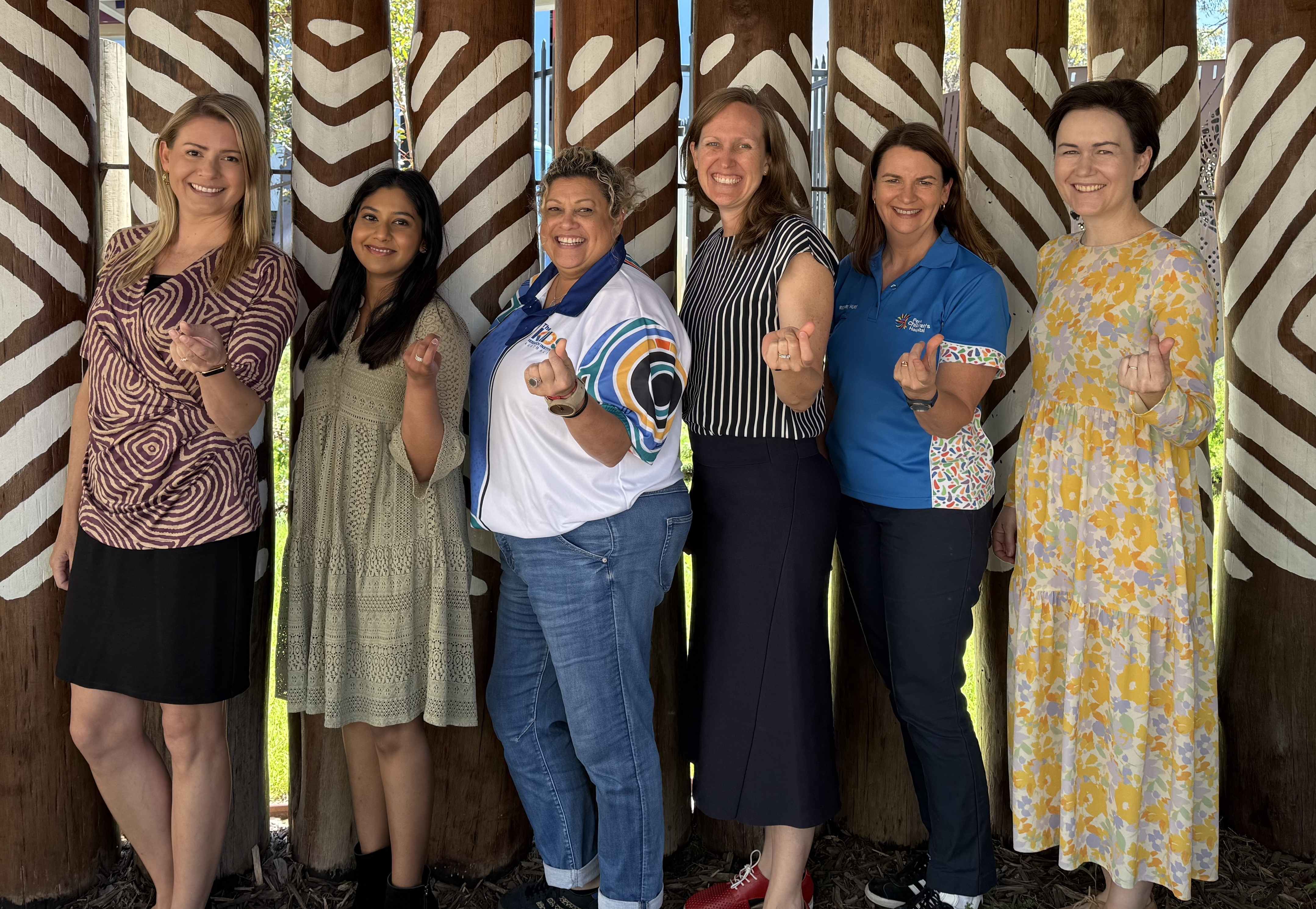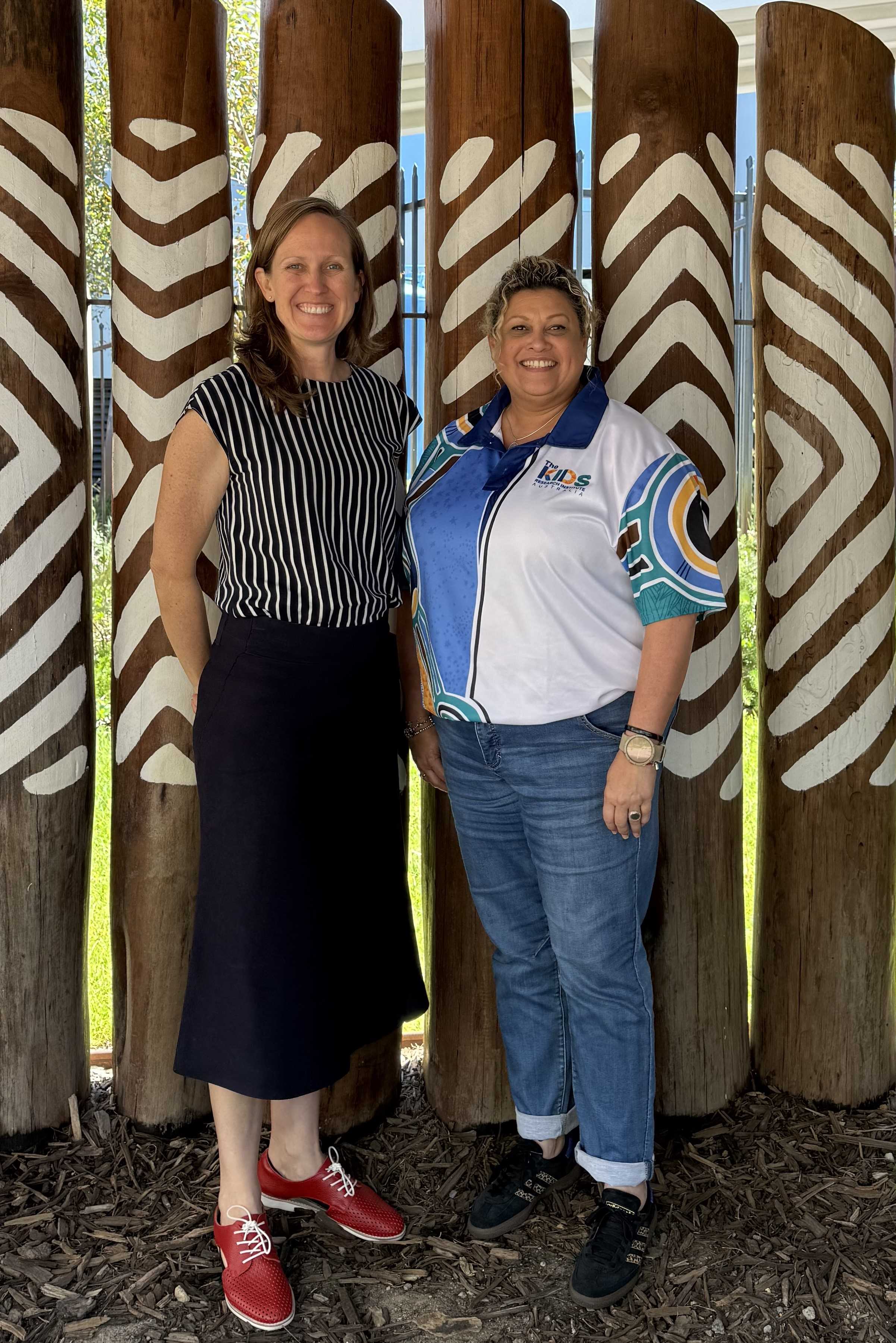
Perth investigators involved in a major global trial have launched an innovative Cultural Information Hub to maximise cultural safety for Aboriginal and/or Torres Strait Islander patients participating in research.
Led by researchers from the Wesfarmers Centre of Vaccines and Infectious Diseases, based at The Kids Research Institute Australia, the new platform supports hospital recruitment for the Staphylococcus aureus Network Adaptive Platform (SNAP) Trial, which aims to improve outcomes for patients with bloodstream infections.
Approximately 20 percent of patients with a Staph aureus bloodstream infection do not survive, so recruitment for the SNAP Trial is underway in over 140 hospitals worldwide, including 45 hospitals in Australia, to determine the best way to successfully treat the infection.
Asha Bowen, Head of the Healthy Skin & ARF Prevention team at the Wesfarmers Centre, Paediatric Infectious Disease Specialist at Perth Children’s Hospital and Professor at The University of Western Australia’s Medical School, identified a gap in cultural knowledge in the clinical trial space during recruitment for the SNAP Trial.
“For research trials of this nature to be successful, it is essential to include a wide range of participants, yet many investigators may have insufficient knowledge to safely recruit Aboriginal and/or Torres Strait Islander people due to limited levels of cultural awareness training,” Professor Bowen said.
“Having access to a dedicated platform designed to support investigators to up-skill and provide confidence and knowledge in cultural safety will play a vital role in our research – encouraging study teams to really consider the needs of participants and elevate opportunities for involvement.
This is particularly important for the SNAP Trial given Staph aureus bloodstream infections are approximately five to six times more common in First Nations populations globally, including Aboriginal and/or Torres Strait Islander people in Australia.
“While we have developed these resources within the context of the SNAP Trial, they are openly available as the principles and importance of cultural safety and respect transcend any single clinical trial,” Professor Bowen said.

Lisa Pigliafiori, Aboriginal Health Project Officer at the Wesfarmers Centre, shaped the development of the Cultural Information Hub through consultations and feedback from SNAP Aboriginal Advisory Committee & research sites Australia-wide, and through her own personal experience.
“As a proud Murri Queensland woman and descendant of the Erubam Le People in the Torres Strait, I know the importance of feeling culturally safe, especially in unfamiliar situations,” Ms Pigliafiori said.
“When you are unwell in hospital you are already feeling very vulnerable, so being approached by a stranger about a clinical trial can make potential participants feel uncertain and unsafe.
Through our new resource platform, we provide videos, training modules and cultural information that provides research teams with the knowledge and confidence to support study participants in the best possible way.
“This will be of huge benefit going forward, not only for the SNAP Trial, but for other clinical studies following our lead - building the strengths of the project team while maximising the potential research outcomes due to greater involvement of Aboriginal and/or Torres Strait Islander people,” Ms Pigliafiori said.
The Kids Research Institute Australia is a key partner in the SNAP Trial, which is being led by the Peter Doherty Institute for Infection and Immunity at The University of Melbourne.
Visit the new Cultural Information Hub via the SNAP website here
